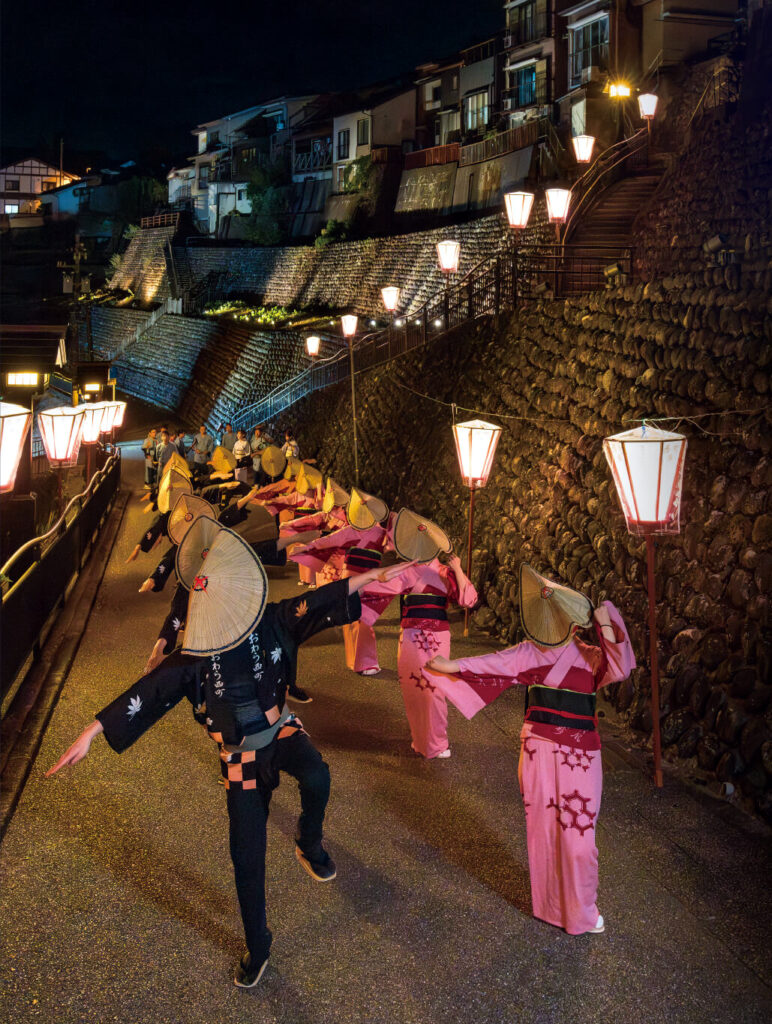
The term “Nihyakutōka” (the 210th day) was commonly heard in the past, but it’s rarely mentioned these days. “Nihyakutōka” is one of the traditional seasonal divisions and refers to the 210th day from the start of spring (around February 4th), which falls around September 1st each year. Around this day, various rituals such as Kazamatsuri (Wind Festivals) and Fūchinsai (Wind Calming Festivals) have been held at shrines across Japan to pray for protection from wind damage.
Additionally, on September 1, 1923 (Taisho 12), the Great Kanto Earthquake occurred, and in 1960 (Showa 35), this date was designated as “Disaster Prevention Day.” Wind festivals meant to protect crops and calm the winds still remain in various parts of the country. Particularly famous is the wind festival held in Yatsuo Town, Toyama City, the “Owara Kaze no Bon” of Etchu Yatsuo.
“Owara Kaze no Bon” is one of the most representative events of Toyama Prefecture, held annually from September 1st to 3rd in the Yatsuo district of Toyama City. In this festival, silent dancers wearing straw hats perform sophisticated dances along the streets of the hilly town, accompanied by the mournful melody of the Etchu Owara Bushi. The festival features graceful female dancers, vigorous male dancers, and the poignant music of the kokyū (a traditional Japanese string instrument), captivating visitors. During the three days of the Owara Kaze no Bon, from September 1st to 3rd, approximately 250,000 spectators visit Yatsuo.
「二百十日」(にひゃくとおか)という言葉は昔はよく聞きましたが、最近はめっきり聞かなくなりました。「二百十日」は雑節のひとつで、立春(2月4日頃)から数えて210日目の日で、毎年9月1日頃にあたります。この日の前後には、風害を免れるよう祈願して、各地の神社で風祭(かざまつり)や風鎮祭(ふうちんさい)などの祭りが催されてきました。
また、1923年(大正12年)には、ちょうどこの9月1日に関東大震災が発生し、これに因んで1960年(昭和35年)には「防災の日」として制定されました。農作物を守るために風を鎮めるための風祭りは全国各地に残っています。特に有名なのが富山市八尾町で行われる風祭り、越中八尾「おわら風の盆」です。
「おわら風の盆」は、富山県富山市八尾(やつお)地区で、毎年9月1日から3日にかけて行われている富山県を代表する行事です。 越中おわら節の哀切感に満ちた旋律にのって、坂が多い町の道筋で編笠を被った無言の踊り手たちが洗練された踊りを披露します。艶やかで優雅な女踊り、勇壮な男踊り、哀調のある音色を奏でる胡弓の調べなどが来訪者を魅了します。おわら風の盆が行なわれる9月1日から3日までの3日間には、合計25万人前後の見物客が八尾を訪れます。
